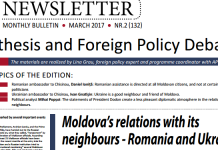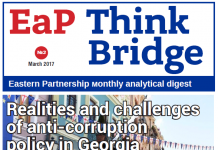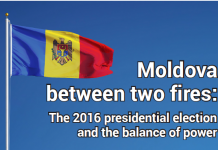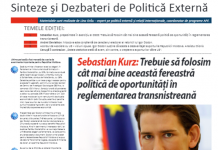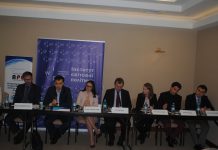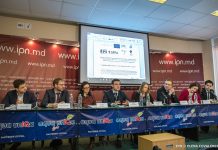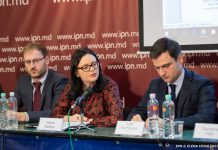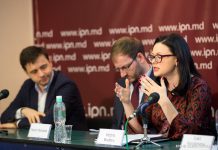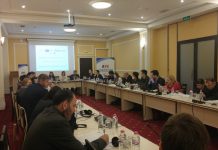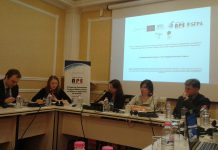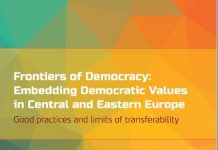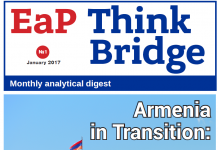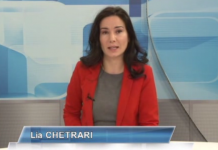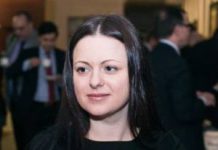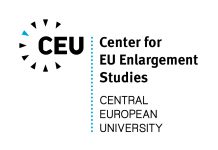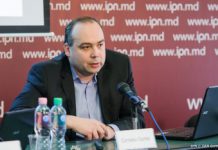APE staff
Newsletter March 2017 nr.2
TOPICS OF THE EDITION:
1. Romanian ambassador to Chisinau, Daniel Ioniță: Romanian assistance is directed at all Moldovan citizens, and not at certain partners or...
Newsletter February 2017 nr.1
TOPICS OF THE EDITION:
1. Sebastan Kurz, Austria’s Foreign Minister and the OSCE Chairperson-in-Ofce: We should make best use of this window of opportunity in...
Communicating Europe in a New Regional Security Context. Kiev, February 22, 2017
Agenda of the Public Debate: Communicating Europe in a New Regional Security Context
European course needs to be promoted by communication, APE. Info Prim Neo: 20.02.2017
The Moldovan authorities do not have a strategy for disseminating information about the European course and the way in which the European integration process is perceived derives from here,
Resemblances and differences in the process of association with EU: Moldova – Ukraine –...
In the process of association with the European Union, the Republic of Moldova, Georgia and Ukraine have a number of resemblances and differences in terms of communication on the European course. These were analyzed by experts in a press club meeting staged at IPN by the Foreign Policy Association.
APE: Defective communication on European course generates greater Euro-skepticism. Info Prim Neo: 20.02.2017
Though the European association of Moldova is one of the main foreign policy courses, opinion polls show the popularity of the European integration idea diminishes among the population
Communicating Europe in a New Regional Security Context. February 20, 2017, Regency Hotel
During the period September 2015- February 2017 the Foreign Policy Association in partnership with the Foundation Institute for Eastern Studies (Poland), Center for EU Enlargement Studies (Hungary)
Public Debate. Communicating Europe in a New Regional Security Context. Chisinau, February 20, 2017
Agenda
Communicating Europe in a New Regional Security Context
10:00 – 10:30 Registration & Coffee Break
10:30 – 10:40 Welcoming remarks
Victor Chirila, President of the Foreign Policy...
Frontiers of Democracy:Embedding Democratic Values in Central and Eastern Europe. Good practices and limits...
Democratization is a complex process that entails both critical choices of new institutions, and the rooting of those institutions in the societal ethos. Much of the literature on democratic transition, consolidation and Europeanization has been dominated by the study of legal and institutional crafting, especially concerning the post-communist and post-Soviet countries of Central and Eastern Europe (CEE), where not only political but also economic and social institutions had to be created in the process of the fundamental transformations taking place after 1989. However, the footprint of a healthy democracy cannot be measured only in terms of institutional performance. It has to also include citizens attitudes to and engagement with the new institutions, and, in fact, a general change of mentality that refl ects their attachment to the new system. It is peoples attachment to democratic values that may keep governments in check and preclude them from slipping toward populist and antidemocratic measures, when the possibility and temptation to reshape democratic institutions arise.
The Center for European Neighborhood Studies in cooperation with the Foreign Policy Association of...
Venue: Regency Hotel (Strada Sfatul Țării 17, Chișinău 2012)
Date: January 27 (Friday), 2017
Language: Romanian / simultaneous translation to English
Program in Romanian: http://bit.ly/2jnH3sE
Program in English: http://bit.ly/2jVWt8i
Statement by the Civil Society Representatives on the commitments made by the President of...
On January 17-18, while paying an official visit to Moscow, Igor Dodon, the President of the Republic of Moldova, made a series of reprehensible statements, which are in conflict with the constitutional provisions, override the national interests, deepen the social division, jeopardize the economic security of the country, seriously tarnish the image of Moldova as a responsible partner, and create tensions in our relations with all the other strategic partners of the country, particularly EU, Romania, and Ukraine.
Newsletter nr.10. Synthesis and Foreign Policy Debates
The Newsletter is based on the radio programme broadcast on
November 21st, 2016, produced by the Foreign Policy Association
of Moldova in partnership with Friedrich-Ebert-Stiftung (FES). The
programme is broadcast on the Radio Moldova public channel.
The programme is part of the FES/APE European Integration and
Foreign Policy Dialogues” Project. The content can be reproduced
by mentioning the source.
Materials can be taken without restriction but with the mentioning of the source
The new presidents of Bulgaria and Moldova are less pro-Russian than advertised.The Economist. 14.11.2016
Victoria Bucataru of the Foreign Policy Association, a Moldovan think-tank, suspects that Mr Dodon and Mr Plahotniuc had a secret alliance” to stop Ms Sandu and her reform agenda. She anticipates that Mr Dodon will follow his announced first visit to Moscow with a reassuring one to Brussels. His election pledges to tear up Moldovas agreements with the European Union will be ignored, not least because—unlike Russia—the EU, its member countries and America give Moldova large amounts of aid. Ever since $1 billion was stolen from Moldovas banking system in 2014 (probably by local oligarchs), the country has been dependent on assistance from the IMF to prop up its financial system. Ms Bucataru thinks Mr Dodons pro-Russian rhetoric is a way of pressuring the West to keep up the flow of funds, while avoiding any serious reform.
Moldova Elections Arent About Europe or Russia. Theyre About Moldova.Andrew Kolb.German Marshall Fund. 10.11.2016
After this weeks U.S. election, not many in the United States or Western Europe are focused on the elections that are taking place in Moldova. Those who have been following saw a fascinating political drama unfold, as Maia Sandu took 38 percent of the vote to Socialist Partys Igor Dodons 48 percent in the first round of voting October 30 — results close enough to force a runoff election between the two candidates scheduled for November 13.
Frontiers of Democracy – Embedding Democratic Values in Moldova and Ukraine.
Moldova and Ukraine, countries of the European Union's Eastern Partnership program, are undergoing complex processes of democratic transformation, but with weak embeddedness of democratic values and principles drawbacks can occur. It is embeddedness that helps to overcome the challenges of transformation and pushes countries beyond mere frontiers of democracy towards becoming strongly committed democratic communities. The goal of this project is to facilitate embedding democratic values in the societal ethos, and thus to contribute to future successful consolidation in Moldova and Ukraine
Corneiul Ciurea: Confidence-Building in Moldova: Domestic and External Security Challenges. EU/ CIPDD/ APE/ PIC...
Moldovas security requires a consistent response to home-grown corruption and the risk of resulting political destabilisation along side the risks posed by the Russia Ukraine conflict and information warfare. Confidence-Building in Moldova:Domestic and External Security Challenges assesses the priorities for a security strategy to rebuild trust among citizens and strengthen international co-operation to diffuse conflicts in the neighbourhood and to settle the Transnistria conflict.


